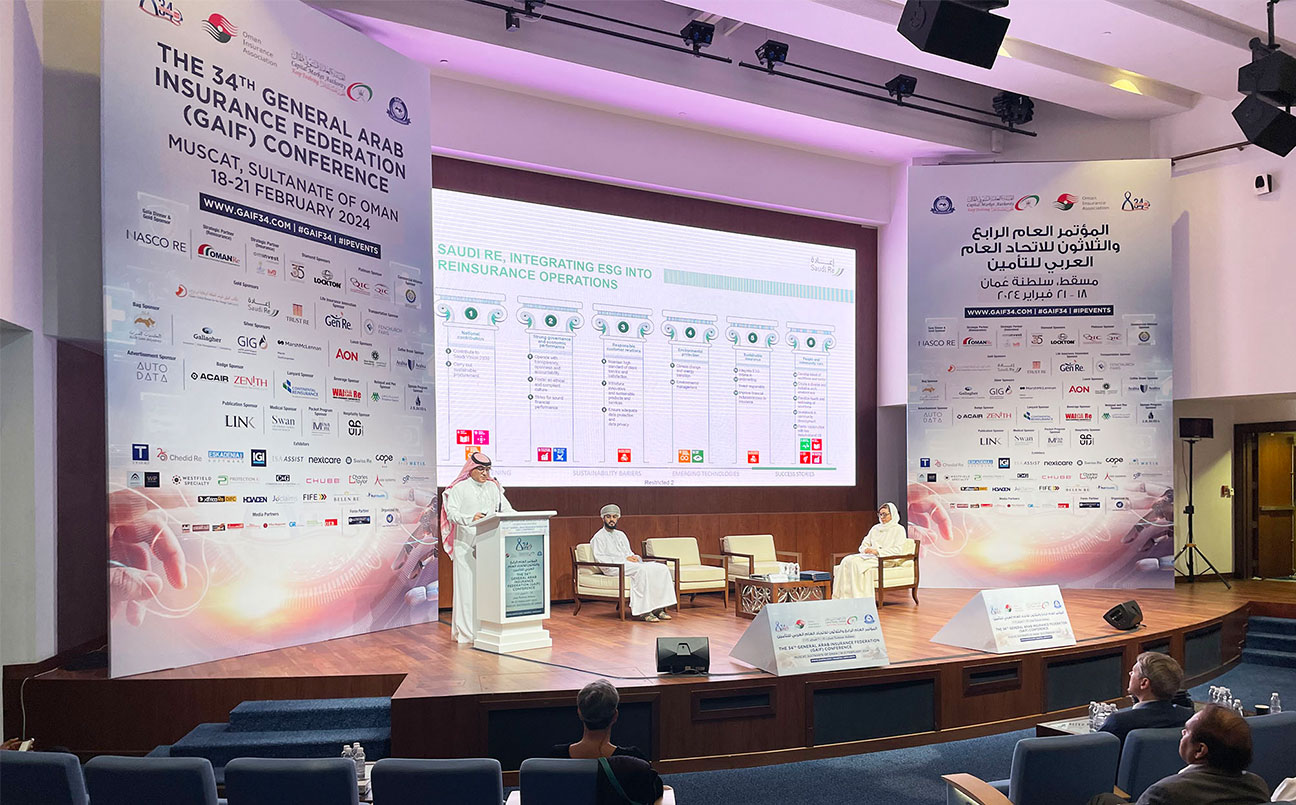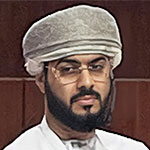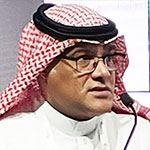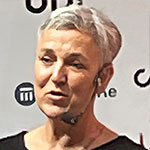Sustainable insurance practices brought to life
Day three of GAIF 34 began with a stellar session on ‘Sustainable insurance practices - strategies and initiatives adopted by Arab insurers to promote sustainability in the industry’ in which delegates were privileged to hear cutting-edge thinking from industry leaders.
By Paul McNamara
 First session of day three, GAIF 34
First session of day three, GAIF 34

The session on sustainable insurance was moderated expertly by Oman Qatar Insurance chief executive officer Hasan Al Lawati who laid the ground for the morning’s discussion when he said, “We are operating in an environment where change is the only constant,” and asked the big question: “How do we make our businesses sustainable?”
Meeting the climate challenge
Mr Al Lawati then introduced the first speaker, Liva Insurance chief executive officer Hanaa Al Hinai.

Ms Al Hinai gave a brief preamble that outlined the realities of rising climate risks in recent years in Oman before turning her attention to the financial impact of climate change on the insurance industry.
She pointed to the findings of Oman’s central bank on the risks to the finance sector as a whole.
All of this,” she said, “is putting pressure on insurers to react.” This is manifest in the Muscat Stock Exchange that now expects all listed entities to report on their ESG efforts and the exchange is “encouraging companies to establish a robust framework for diverse sustainable endeavours.”
Ms Al Hinai then went on to talk about the Oman sustainable finance framework itself and its efforts to fund environmental and social initiatives to combat climate change. She then detailed how the framework fits within Oman Vision 2040.
Ms Al Hinai concluded by turning to Oman’s insurance industry and how it could integrate sustainable practices for resilient underwriting. “The Oman insurance industry’s response to climate risks is evolving rapidly,” she said. “Insurers must embrace sustainable practices to mitigate risks associated with climate change, natural disasters and societal challenges.
“We aim to integrate sustainability principles into our operations, products and services, ensuring long-term value creation for our stakeholders and the communities we serve,” she said.
Reinsurer perspective

Saudi Re chief strategy and technology officer Isa Ali then took up the baton and focused closely on the four barriers to ESG integration – which included limited awareness and understanding, regulatory and legal uncertainty, lack of data availability and the quality and transformation to sustainable practices.
Mr Ali then picked up on the emerging technologies that might help facilitate sustainable insurance practices – with a focus on advanced analytics and AI, the internet of things, process automation and InsurTech platforms.
He then revealed the practical implications of implementing ESG directives in day-to-day business with a look at what Saudi Re had done in the area of sustainability and said that the reinsurer was one of the first reinsurers to integrate ESG into its operations.
This commitment from Saudi Re fell under six pillars – including national contribution, strong governance and economic performance, responsible customer relations, environmental protection, sustainable insurance and people and community care.
Mr Ali’s parting message wa s particularly relevant. “Insurance is inherently dynamic,” he said. “Challenges are inevitable. Innovation is crucial for maintaining competitiveness and meeting the evolving needs of stakeholders.
“Technology-led innovations could be a strategy to boost productivity, efficiency and ESG goals simultaneously,” he said.
Useful in every application

The final speaker, Ripple Effect chief executive officer Katja Rieger began by making the stark statement that “being good makes good business sense” and went on to explore how ESG is all about risk and opportunities.
“Insurers can come together and work on risks to enable better solutions for society,” she said. “And they will reap the benefits too.”
She added a note of caution. “ESG is a process. You won’t do it perfectly on day one. You will make mistakes – and that’s what makes it so valuable,” she said. “No one expects you to be perfect in the first year – because next year the bar will be set even higher.”
The morning session concluded with a lively debate that teased out more thoughts, concerns and insights and provided delegates with plenty of food for thought about the central place of sustainability of insurance in the Arab world.